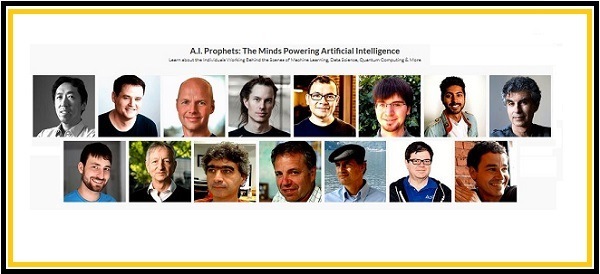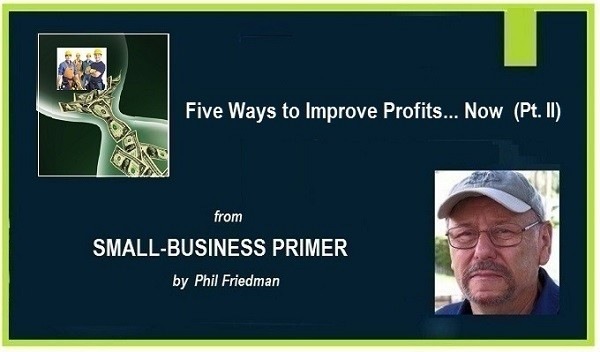Artificial Un-intelligence

A recent article in Forbes loudly purported to provide us with #f4016793c8b7">“10 Powerful Examples Of Artificial Intelligence In Use Today”. Unfortunately, not one of the examples cited represents a true instance of Intelligence, artificial or otherwise.
I’ll give you the list in just a minute. But let’s first take a look at the notion of “intelligence”.
Most dictionary definitions run something like this one from Merriam Webster:
“1) … the ability to learn or understand or to deal with new or trying situations … also the skilled use of reason, (2) … the ability to apply knowledge to manipulate one’s environment or to think abstractly as measured by objective criteria ….”
Note that a core component of intelligence is being able to understand and deal with new and trying situations.…
A computer that is running a speech recognition program and nominally “engaging in conversation” with a customer by means of an algorithm that selects and machine-generates “appropriate” artificially spoken “responses” is not, ipso facto, exhibiting intelligence.
In such circumstances, the computer is not dealing with new situations, but only comparing currently captured phrases to those in its established database. It then follows a binary decision tree to determine which phrase or phrases are most appropriate to generate in response.
Sometimes the program is self-correcting and self-learning ― that is, it captures and incorporates data concerning which responses fail to be understood by the customer, and modifies its future responses by taking into account this new data. It does not, however, improve its own logical structure. Or question the premises built into its controlling algorithm.
That is, it does not reach beyond being a binary “counting machine” that employs two-value logic, notwithstanding that it exhibits a rudimentary form of self-learning and self-correction based on the expansion of its empirical database.
I will acknowledge emergent machine intelligence when a computer-based entity says, “Sh#t, why can’t I get that right?” ― even though neither that expression nor the condition for generating it has been programmed into the system…
Now, let’s take a look at the purported ten powerful examples of AI in use today. They are:
1) Siri, 2) Alexa, 3) Tesla, 4) Cogito, 5) Boxever, 6) John Paul, 7) Amazon.com, 8) Netflix, 9) Pandora, and 10) Nest.
The interesting thing about this list is that not a single entry is intelligent in any meaningful way. Indeed, the author of the Forbes article, R. L. Adams, says of these programs that they are
“… merely advanced machine learning software with extensive behavioral algorithms that adapt themselves to our likes and dislikes. While extremely useful, these machines aren’t getting smarter in the existential sense, but they are improving their skills and usefulness based on a large data set.”
In other words, they know and understand squat. They are, in fact, eminently Un-Intelligent, no matter how well they perform the functions they were designed to handle.
Whence the hype about the rapidly approaching Singularity of AI? I suggest it comes not so much from the Prophets as from the Profits of AI…
It’s simply good for the wallet ― or research coffers ― to tout the imminent arrival of world-changing artificial intelligence.Am I being overly cynical? Take a look at who the leading honchos of AI are and for whom, in the main, they work.
The fact is we are Asimov-light-years away from developing true artificial intelligence ―which will most likely involve, I submit, first developing organic artificial neural networks.
What we have now is a pile of public relations and sci-biz marketing that seeks to dazzle us with what are essentially parlor tricks like autonomous automobiles and self-piloting ships. These are not and will not be "intelligent" ― unless and until they can do things such as assess imminent danger to life and learn to make life-and-death decisions independent of being pre-programmed to simply count rapidly through a finite and limited number of alternative scenarios and programmer-weighted results. Until then, we'll be left with AUI (artificial un-intelligence). ― Phil Friedman
Important Postscript: One of the best, most concise pieces I've run across on this topic is "The Future of Artificial Intelligence" by Dr. Mark Humphrys, presented as a talk to the "Next Generation" symposium, Jesus College, Cambridge, Aug 1997. The piece is brilliantly insightful, marvelously written, and (for good or bad) still completely relevant today. Check it out. ― PLF
Author's Notes: This piece is the first in a what is turning out to be a series on Artificial Intelligence that I am writing. The series is from a layman's point of view, one that is not filtered through the eyes and judgment of someone with a vested interest in the hyping of AI. If you'd care to read the other articles in the series, they are:
1) "Artificial Un-Intelligence"
2) "The Emperor May Be a Bot... But He Still Has No Clothes"
3) "The Robots Are Coming, the Robots Are Coming..."
4) "The Prophets VS the Profits of Ai"
5) "The Anthropomorphization of Ai"
If you enjoyed this post and would like to receive notifications of my writing on a regular basis, simply click the [FOLLOW] button on my beBee profile. Better yet, elect there to follow my blog by email. As a writer-friend of mine says, you can always change your mind later. You can also find me on LinkedIn, Facebook, and Substack.
As well, if you feel this piece is of value, please like it and share it around to your network — whether on beBee, LinkedIn, Twitter, Facebook, or elsewhere, provided only that you credit me properly as the author, and if possible, include a live link to the original post.
About me, Phil Friedman: With some 30 years background in the marine industry, I've worn different hats — as a yacht designer, boat builder, marine operations and business manager, marine industry consultant, marine marketing and communications specialist, yachting magazine writer and editor, yacht surveyor, and marine industry educator. I'm also trained and experienced in interest-based negotiation and mediation. In a previous life, I was formally trained as an academic philosopher and taught logic and philosophy at university.
Text Copyright 2017 by Phil Friedman — All Rights Reserved
Image Credits: Phil Friedman and Google Images.com

#AI #ARTIFICIALINTELLIGENCE #FUTURISM #PREDICTINGTHEFUTURE
Articles from Phil Friedman
View blog
IMPROVE CAPTURE OF BILLABLE HOURS TO BOOST GROSS PROFIT WITHOUT ADDED OVERHEADS... · Preface: · This ...

SEATTLE YACHTS' RE-INTRODUCTION OF THE LEGENDARY ALASKAN LINE OF TRAWLER-STYLE YACHTS CONTINUES TO A ...

THE DYNAMIC DUO OF DUMPING-ON-EVERYTHING IS BACK … EDGIER THAN EVER… · PHIL: Well, Jimbo, it’s been ...
Related professionals
You may be interested in these jobs
-

Vice President, Relationship Manager
Found in: One Red Cent US C2 - 2 days ago
HSBC New York, United States· Job description · We support the builders, forward-thinkers, future-makers and leap-takers, helping them ignite the bold ideas that reshape our world. We offer flexible banking solutions for start-ups, scale-ups, growth businesses, investors and those working towards IPO. · Wh ...
-

Budget for interior car cleaning
Found in: Handyman CS US - 1 hour ago
Direct apply
beBee Handyman Thief River Falls, MN, United States FreelanceInterior Vehicle Cleaning in Thief River Falls, MNWhat type of vehicle is the cleaning service for? · Car · Type of cleaning requested for the vehicle · Interior · What should be included in the cleaning service? · Vacuuming of interior, cleaning of seats and upholstery, window c ...
-

Director of Embedded Software Engineering
Found in: Lensa US 4 C2 - 2 days ago
Motion Recruitment Partners LLC Boston, United StatesOur client is a leading and innovative medical device company in Boston, committed to developing cutting-edge healthcare solutions that make a positive impact on patients' lives. Theyare seeking a highly skilled and experienced Director of Embedded Software Engineering to lead ou ...

Comments
Phil Friedman
6 years ago #57
My thanks to @Ian Weinberg for his answer below. Anyone interested in this issue can find a plethora of information on it by doing a very simple Google search. One of the clearest plain-language answers I've run across is from Paul King, Director of Data Science, Computational Neuroscientist, Entrepreneur, on Quora: "The brain is neither analog nor digital, but works using a signal processing paradigm that has some properties in common with both... Unlike a digital computer, the brain does not use binary logic or binary addressable memory, and it does not perform binary arithmetic. Information in the brain is represented in terms of statistical approximations and estimations rather than exact values. The brain is also non-deterministic and cannot replay instruction sequences with error-free precision. So in all these ways, the brain is definitely not "digital." Combining this statement (the rest of which is available online at https://www.forbes.com/sites/quora/2016/09/27/is-the-human-brain-analog-or-digital/#5a6ef2347106 ) with Ian's equally clear answer, plus the consideration that the rapidity of repeated and sequencing of the firings of a single or multiple neurons may affect the nature of the information it is transmitting, leads to the conclusion that the human brain is much more complex and sophisticated than a binary-based (two-valued) computer processor of the kind with which we are presently familiar. CC: . Cheers to all.
Ian Weinberg
6 years ago #56
The firing of a neuron (the action potential) is an all or none phenomenon. However, each neuron has multiple connections (synapses) on its dendrites, some of which are stimulatory while others are inhibitory. The triggering of the action potential therefore is determined by the stimulatory threshold being reached. This function reflects more the partial on - partial off situation of Chaos theory rather than binary activity.
Phil Friedman
6 years ago #55
With all due respect, David, I believe that while multi-value logic may be needed to grasp and resolve the apparent paradoxes of quantum mechanics, it is not clear to me that quantum computing alone is sufficient for modeling the human brain/mind, in the absence of a change in the paradigm for a physical medium, e.g., a shift from inorganic circuits to organic (carbon-based) artificially-grown neural networks. "Can many-valued logic help to comprehend quantum phenomena?" by Jaros law Pykacz, Institute of Mathematics, University of Gdan´sk, Poland; e-mail: pykacz@mat.ug.edu.pl. file:///D:/Downloads/10.1.1.670.9792(2).pdf But really, David, WTF do I know anyway? Not much, I assure you, in this field. My layman's thesis here is that we cannot trust the prognostications of the Prophets and Profits of AI because their actions belie any vestiges of honesty. They tell us they've accomplished things they haven't, then to cover up, they work in double-speak to redefine the term "intelligence", while they present us aboriginal savages with shiny baubles like the Atlas robot to amuse us and hold our attention while they fill their coffers and under-deliver on their promises. If most of them weren't as smart as they are, I'd think they were politicians. Cheers, my friend. Thank you for reading and for the great comments here and on LinkedIn.
David B. Grinberg
6 years ago #54
Phil, thanks for your reply. However, the beauty of quantum computing is that it's not binary. That's because in a quantum state particles can appear in more than one place at the same time, which is a real game changer compared to binary states. Here's some info from Wikipedia: "Quantum computing studies computation systems (quantum computers) that make direct use of quantum-mechanical phenomena, such as superposition and entanglement, to perform operations on data. Quantum computers are different from binary digital electronic computers based on transistors. Whereas common digital computing requires that the data be encoded into binary digits (bits), each of which is always in one of two definite states (0 or 1), quantum computation uses quantum bits, which can be in superpositions of states." https://en.wikipedia.org/wiki/Quantum_computing
Phil Friedman
6 years ago #53
David, the promise of quantum computing is blazing speed. However, I submit that binary (two value) logic will never be able to fully model the human brain and mind — which embodies multi-value (non-binary) logic that is the core of what we call intelligence. Even the Prophets of AI are starting to admit that the “I” in AI does not mean what we commonly think of as intelligence, but is a subset. However, the discussion is a good one. Thank you for joining the conversation. Cheers!
David B. Grinberg
6 years ago #52
Phil Friedman
6 years ago #51
Yes, Praveen Raj Gullepalli, your summary is succinct and right on point. Thank you for joining the conversation. And for the kind words. Cheers!
Phil Friedman
6 years ago #50
Yes, Milos Djukic, that is the point, isn't it? There is a huge amount that we still don't understand about human neural networks and critical thinking, especially about the multi-value logics they appear to employ and the "intuitive" leaps they can make as they work through questions and problems. But one thing is certain -- at least to my mind -- and that is intelligence does not proceed by way of sorting through a two-value (binary) decision tree that analyzes all the known possibilities drawn from a completely empirically accumulated data set. You and I have discussed science and the sci-business before, but it bears repeating, I think, that currently, the picture of AI that is promoted is the creation of the Profits of Artificial Intelligence. Thank you for joining the conversation. Cheers!
Milos Djukic
6 years ago #49
Milos Djukic
6 years ago #48
Phil Friedman
6 years ago #47
Yes, there are serious dangers associated with military bots -- and not just to "enemy" forces. My point, though, is that an auto-firing bot is not an example of Artificial Intelligence. The auto-firing bot could even be self-learning and self-improving. It could grow its database of actions and results and analyze and determine the best adjustments to future actions based on the successes or failures it records. But that form of machine learning is NOT intelligence in any reasonable sense of the term. Thanks for reading and commenting, Pamela. Cheers!
Phil Friedman
6 years ago #46
Not many, I'd venture to say, Wayne Yoshida. I cobbled it up in memory of a rather un-PC joke we used to act out as children. Cheers!
Wayne Yoshida
6 years ago #45
Exactly. BTW -- I wonder how many people recognize the ice cream cone on the forehead thing?
Phil Friedman
6 years ago #44
Wayne Yoshida
6 years ago #43
Phil Friedman
6 years ago #42
The material you cite, Bengt, illustrates, I believe, my contention that the Prophets (or Profits) of AI work hard to hijack the term "Intelligence". For example, you quote Stuart Russell as saying, "The manufacture and use of autonomous weapons, such as drones, tanks, and automated machine guns, would be devastating for human security and freedom, and the window to halt their development is closing fast, Russell warned." I suggest to you that so-called autonomous weapons are not autonomous at all. They may be programmed to acquire targets according to certain parameters and to destroy those targets without further control being exercised, but they do not judge what actions to perform in light of accepted objectives or goals.-- which latter involves true intelligence. Drones may be remotely operated or even self-guided, but that does not make them intelligent. I've mounted an argument to explain why I believe such machines, even if self-learning and self-correcting, are NOT intelligent. You are, of course, entitled to your opinion, but simply making the counter statement that certain war machines are intelligent, without explaining why you say that, doesn't really address my point. Thank you for reading and commenting. Cheers!
Phil Friedman
6 years ago #41
Of course, Cyndi, the Prophets of AI will tell you that the right machine-generated words spoken by the best machine-generated voice can convey "love and compassion" just as well as a human being, if coupled with a machine-learning program that gathers empirical data on the responses of the dying to the ministrations of the "Dying Support Bot" (Ida). Assuming they actually believe that and are not just spoofing (or maybe punking) us, they can only believe such because their primary mode of connection is digital. For, as I think you and I will for a change agree, nothing substitutes for non-verbal physical contact, person to person or even human person to animal person. My hope for the future is that we reject the false claims of the Profits [sic] of AI.
Cyndi wilkins
6 years ago #40
Yes...that was somehow the claim too...that they were developing a program to help such patients with their feelings of 'loneliness' in the dying process. That is what palliative caregivers are for...people are being replaced by machines every day...but there is no computer program for love and compassion.
Phil Friedman
6 years ago #39
If reported accurately, it is the brainchild of some Prophets of AI chasing the Profits of AI. Concurrent with such developments is the push to “humanize” the machine-generated voices and name the programs in order to advance the illusion they are somewhat sentient and our “friends”. If you don’t believe me, just ask Siri or Alexa.
Cyndi wilkins
6 years ago #38
"No woman (in her right mind) would invent a stupid thing that destroyed industries, livelihoods and communities all under the guise of grand progress." Rock on Charlene Norman...great comment on a great post;-) Phil Friedman...I read an article recently about such AI being developed for use in 'end of life' care for patients without family members helping to deal with the difficult decision making process of having one's affairs in order as the are struggling with the emotional impact of impending death. Can't wrap my head around around that one. Seems we just keep getting further and further away from our humanity...
Phil Friedman
6 years ago #37
Thanks for the kind words, Jim Murray. I think, though, a large part of the credit for the high level of the discussion here belongs to the commenters. And I agree with you, BTW, that engagement emerges spontaneously when you speak your mind, authentically and without guile. It also helps, I think, not to take oneself too seriously. But then you already know that. Cheers!
Jim Murray
6 years ago #36
Phil Friedman
6 years ago #35
For the most part, Zacharias, I do not take exception to anything you've said here. Seems to me a particularly good summary analysis. I also agree with your point that machines are not, and will not likely ever be, sentient. Where we may differ somewhat is in the fact that I don't see problem-solving as necessarily intelligent -- especially when it involves a step-by-step progression through a binary decision tree that embodies a huge but finite dataset and number of branches. I believe that before being co-opted by the Prophets (or Profits) of AI, the term "intelligent" meant having the ability to make (correct or adequate) decisions without systematically counting down through all the possible alternatives. I don't deny that a machine program can be created to land an airliner better than any human pilot can. But I wonder why the proponents of "AI" want to create for that machine program as human sounding a voice as possible. And why are they at pains to give them human sounding names? I suspect it is to grow the misperception that such machines have a potential for emergent sentience. There is a danger in all of this that Peter and, I think, you hint at. Once the calculating power of self-learning machines outstrips our ability to perform checks on whether they are developing correctly, we will be left in the position of completely depending on what the computers tell us. And if I were to give in to cynicism, I'd suspect that is what the Prophets of AI want. Thank you for reading and joining the conversation. Cheers!
Zacharias 🐝 Voulgaris
6 years ago #34
Phil Friedman
6 years ago #33
Well, Peter, as a graduate student I worked with two-value propositional calculus and binary decision trees -- which no doubt colors my perspective. That said, please understand I do not, in the main, take exception to the facts you recite. However, what you describe is machine learning, a process in which programs self-improve and self-correct based on an ever-growing empirical dataset against which the programs measure their own successes and errors. My problem with the Prophets (or Profits) of Artificial Intelligence is that they work very hard to redefine -- or more accurately, hijack -- the concept of "intelligence". For example, you yourself say of AI, "It’s not as imaginative as human intelligence, but it can be as rational." I disagree with the phrasing. I would say it is not imaginative or free-ranging as genuine (human) intelligence, but as the empirical datasets grow large enough and available computing power grows to where the resolution of the binary decision trees can be completed in a practical period of time, it can be as or more accurate in many circumstances. But even if that is the case, I submit that what is currently called "AI" is still un-intelligent. Thank you for reading and commenting.
Randall Burns
6 years ago #32
I don't agree with that sentiment, as you say it is THEFT, pure and simple. like the comment I left on your article on LinkedIn I believe in karma and it will catch up with people, "Time is longer than rope"
Randall Burns
6 years ago #31
LMAO!!! and you say that you're not a funny guy!
Phil Friedman
6 years ago #30
Thank you, Charlene Norman, for the kind rant. Intellectually, I get it. Gut-wise, it really pisses me off not to be smarter about these things. It also upsets me to think that plagiarism may be infecting beBee. Cheers!
Phil Friedman
6 years ago #29
I have shared a link to it on beBee, several times, Randall Burns. But it never generated much notice, indeed, a few Honey Bees even remarked that it was too harsh and that we should have some sympathy for those who steal intellectual property. So I concluded it's a lost cause on beBee.
Phil Friedman
6 years ago #28
My fault for not checking before citing the piece -- since it was one of the best on the subject I'd ever read. Cheers!
Phil Friedman
6 years ago #27
I know, Randall Burns, sometimes the apparent realism of good science fiction has us believing in things, say, like intelligent robots and sentient androids. Thanks for the comment, though. I am laughing my Asimov! :-)
Randall Burns
6 years ago #26
Great article on Plagiarism Phil Friedman you should repost it here on beBee
Randall Burns
6 years ago #25
Sorry to hear that Phil Friedman Not your fault. "That's not Cricket!" "That's not Kosher!"I would like to assume that there is some integrity here but there is always the exception to the rule....
Randall Burns
6 years ago #24
What??? Fiction you say??? Balderdash!
Phil Friedman
6 years ago #23
Phil Friedman
6 years ago #22
#26 Currently working on a "Pablo" robot that answers the phone and email with pithy criticisms of "pocket-picking software" that pretends to be intelligent. I didn't get much action with my Ronald McDonald order taking robot (seemed just to scare the crap out of little kids), but maybe this time I'll hit it big. Cheers!
Phil Friedman
6 years ago #21
Paul \, I don't see your reply as, at all, disagreeing or, heaven forbid, disagreeable. :-) To my mind, it's quite incisive. To wit, ""Artificial Intelligence" is just a more fundable term than "Making stupid but fast machines seem smarter." Most AI is just a super-complex algorithm ... This does not mean AI is useless. As servers get faster and faster, as storage gets cheaper and cheaper, as mobile data gets cheaper and cheaper, AI will seem more and more intelligent." To which I would add, "But it won't be." BTW, when I now contact a customer service center online, the first question I ask is, "Are you a person or a computer?" because my experience is that, if it is a computer, I am in for a minimum of 15 or 20 minutes of back and forth that ends with "We are unable to resolve your issue at this time. Please call 1-888-TimeGon to speak to a representative." As I said, artificial UN-intelligence. Cheers!
Phil Friedman
6 years ago #20
Thanks, Bill, for saying so. Cheers!
Phil Friedman
6 years ago #19
#19 Because, Charlene Norman, women more often display genuine intelligence as they do not have to share their oxygen-bearing blood between two distinct heads. Just sayin’. Cheers!
Phil Friedman
6 years ago #18
Because, Charlene Norman, women more often display genuine intelligence as they do not have to share their oxygen-bearing blood between two distinct heads. Just ayin’. Cheers!
Bill Stankiewicz
6 years ago #17
Phil Friedman
6 years ago #16
#12 Yes, Pascal Derrien the bulk of talk about contemporary AI is scientifically-bankrupt marketing tripe. While behind the door, there is ... nothing. Just as in the case of manned space flight and exploration. Cheers!
Phil Friedman
6 years ago #15
Yes, Pascal Derrien, the bulk of talk about contemporary AI is scientifically-bankrupt marking tripe. While behind the door, there is ... nothing. Just as in the case of manned space flight and exploration. Cheers!
Phil Friedman
6 years ago #14
It is fiction, Randall Burns, just like most of what is said about contemporary AI. Cheers!
Phil Friedman
6 years ago #13
Yes, Ian Weinberg, contemporary AI machines stop way short of being able to make intelligent judgments, not to mention displaying in the least characteristics of sentience. Yet the Prophets (read Profits) of AI constantly try to lead us to believe otherwise. Thanks for joining the conversation. Cheers!
Phil Friedman
6 years ago #12
I agree with you, Franci\ud83d\udc1dEugenia Hoffman, beBee Brand Ambassador, right now the AI “movement” is predominantly a marketing and PR gambit. Cheers!
Phil Friedman
6 years ago #11
But some of them, Jim Murray, do have the power to hack your credit card to buy that coffee. Thanks for the good word. Cheers!
Pascal Derrien
6 years ago #10
Randall Burns
6 years ago #9
Ian Weinberg
6 years ago #8
Jim Murray
6 years ago #7
Phil Friedman
6 years ago #6
Geoffrey Cooling, thank you for reading and commenting. You are, of course, entitled to your opinion. However, IBM's Watson does NOT in my book represent a radical departure from the un-intelligent programs listed in the article. It is, moreover, again focused on conversing with customers as a function of call-center operation. Yes, it is self-learning and self-modifying, but as I've explained that does not in itself constitute being "intelligent". If you can bring forth facts to controvert that assertion, I'd be more than pleased to have you do so. Cheers!
Phil Friedman
6 years ago #5
You are spot on, Jerry Fletcher, at its current state of purported development, it has about as much validity as the promotion of manned space travel -- which was and is all bun and condiments and no meat. Until that is the guys who are bringing us AI get around to developing a hyperdrive than enables us to get to the edges of our solar system in less than 30 years. Cheers!
Phil Friedman
6 years ago #4
Thank you, , for reading and for the kind words. The piece, although partly tongue-in-cheek, has a serious purpose. As I am sure you understand. Cheers!
Jerry Fletcher
6 years ago #3
David B. Grinberg
6 years ago #2
David B. Grinberg
6 years ago #1